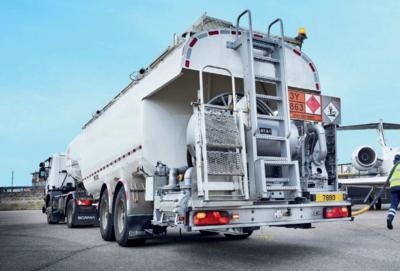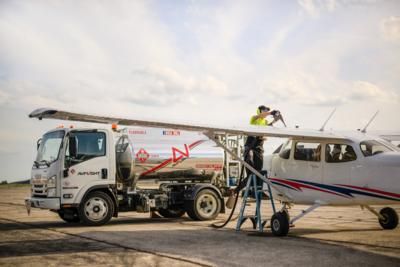Sat, Sep 17, 2022
Recent Developments in Lead-Free Fuel Brings Unique Considerations for Avgas Providers
The National Air Transportation Association has released a white paper regarding recent developments in unleaded avgas following the STC approval for General Aviation Modifications Inc’s. (GAMI) G100UL.

The Association's GA Fuel Subcommittee brought together a range of industry minds to create recommended best practices for the deployment of the unleaded fuel. The group threw its support behind the Eliminate Aviation Gasoline Lead Emissions (EAGLE) Initiative’s goal of an entirely lead-free general aviation ecosystem by 2031. Until now, the industry lacked a real, easily scaled, 100LL replacement that would require a minimum of infrastructure and provide maximum interoperability to ensure industry-wide takeup of the new tech. The FAA’s recent issuance of Supplemental Type Certificates approving the use of GAMI’s 100 octane unleaded avgas product, G100UL, in all spark-ignition piston aircraft and engines in the general aviation fleet turns that industry gap on its head. Now, a large plurality of aircraft can easily begin using unleaded avgas, with minimal fuss compared to some previous solutions that required specially formulated fuels with limited market penetration. NATA notes that
this major step forward will take some work, but affirms that the launch producer for G100UL, Avfuel, will soon be joined by a handful of other companies in expanding availability. Swift Fuels, Phillips66/Afton Chemical, and Lyondell Chemical/VP-Racing are all actively pursuing approval to produce and sell GAMI's new offering.

“With the spotlight glowing ever brighter on unleaded aviation fuels, industry stakeholders have been proactively seeking information on considerations for offering more environmentally friendly fuel options,” stated NATA Managing Director of Industry and Regulatory Affairs Megan Eisenstein. “NATA is pleased to offer guidance to assist them in taking a leadership role in advancing the national effort to reduce lead emissions from piston-engine aircraft through safe and effective unleaded avgas implementation.”
The white paper assists the unleaded push by suggesting 4 key phases for those fuel providers offering the 100LL replacement. Those phases - Discovery, Preliminary Communications, Infrastructure Considerations, and Final Communications - will help delineate efforts as stakeholders look to spread awareness and ease their area into safe and effective unleaded fuel use.
“It is critical to have a misfueling prevention program in place, and to implement comprehensive management of change processes and perform risk assessments when introducing new fuels,” said Steve Berry, NATA Managing Director of Safety and Training. “Keeping lines of communication open between pilots and FBOs throughout the fueling process is also essential.” NATA reminds the industry of its Safety 1st program, as well as its soon-to-be-updated programs to prevent misfueling.
More News
"The owners envisioned something modern and distinctive, yet deeply meaningful. We collaborated closely to refine the flag design so it complemented the aircraft’s contours w>[...]
Nonradar Arrival An aircraft arriving at an airport without radar service or at an airport served by a radar facility and radar contact has not been established or has been termina>[...]
From 2022 (YouTube Edition): Still Life with Verve David Uhl was born into a family of engineers and artists—a backdrop conducive to his gleaning a keen appreciation for the >[...]
Also: Electra Goes Military, Miami Air Taxi, Hypersonics Lab, MagniX HeliStrom Amazon’s Prime Air drones are back in the spotlight after one of its newest MK30 delivery drone>[...]
Also: Trailblazing Aviator Betty Stewart, Wind Farm Scrutiny, Chatham Ban Overturned, Airbus Shares Dive A Thunderbird pilot, ID'ed alternately as Thunderbird 5 or Thunderbird 6, (>[...]
 Aero-News: Quote of the Day (12.11.25)
Aero-News: Quote of the Day (12.11.25) ANN's Daily Aero-Term (12.11.25): Nonradar Arrival
ANN's Daily Aero-Term (12.11.25): Nonradar Arrival Classic Aero-TV: David Uhl and the Lofty Art of Aircraft Portraiture
Classic Aero-TV: David Uhl and the Lofty Art of Aircraft Portraiture Airborne-NextGen 12.09.25: Amazon Crash, China Rocket Accident, UAV Black Hawk
Airborne-NextGen 12.09.25: Amazon Crash, China Rocket Accident, UAV Black Hawk Airborne 12.05.25: Thunderbird Ejects, Lost Air india 737, Dynon Update
Airborne 12.05.25: Thunderbird Ejects, Lost Air india 737, Dynon Update




